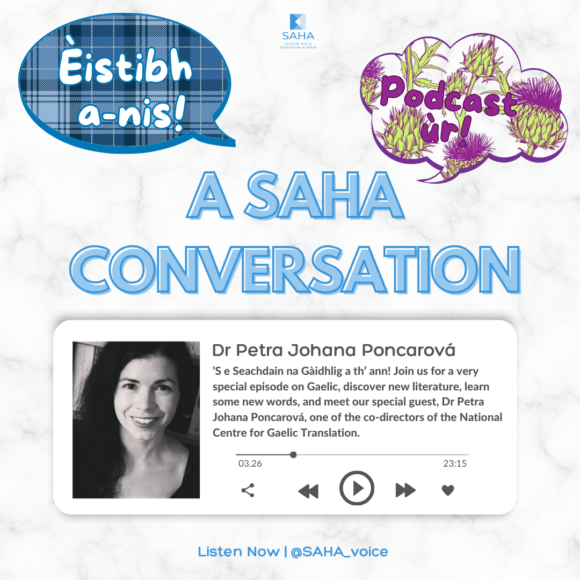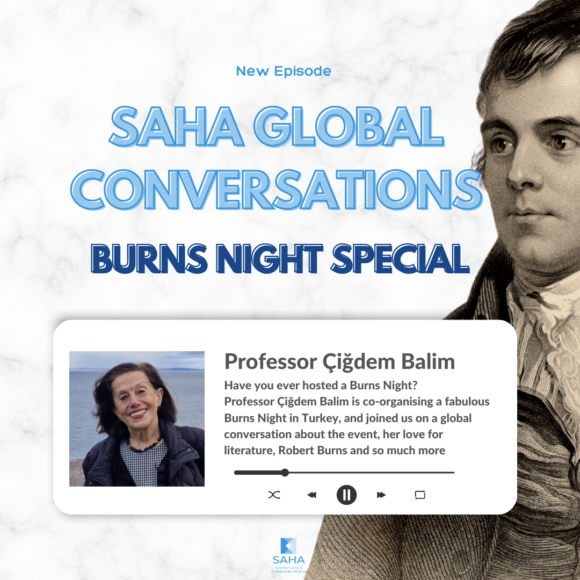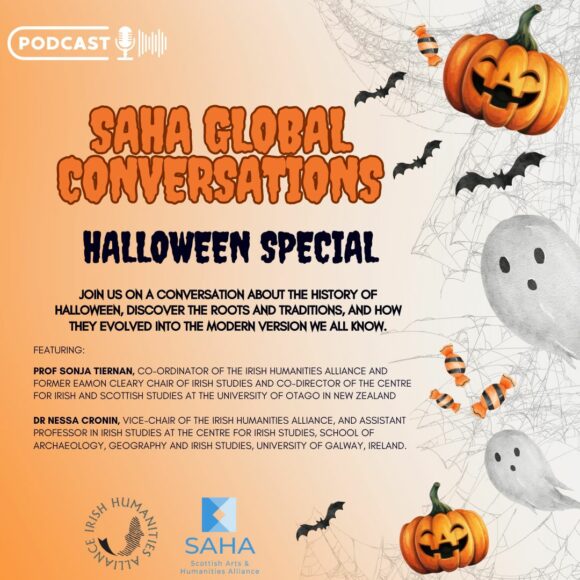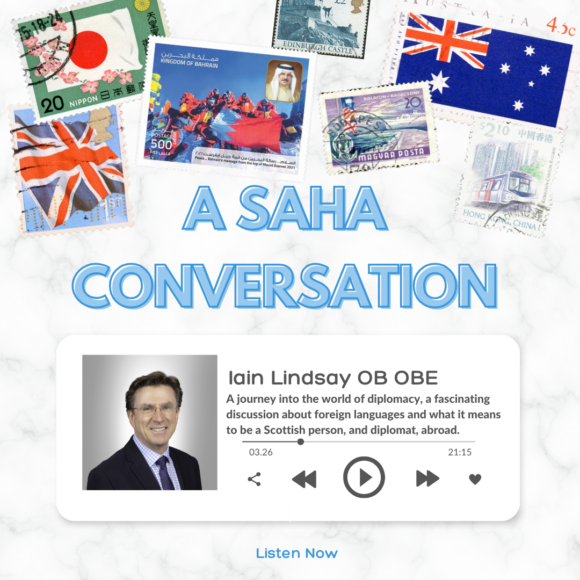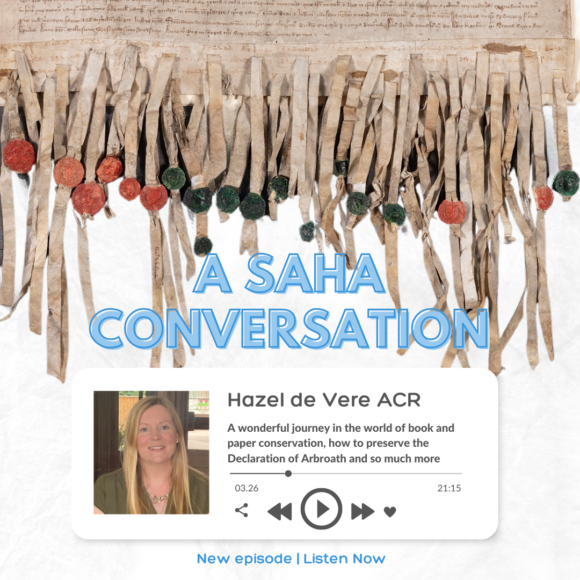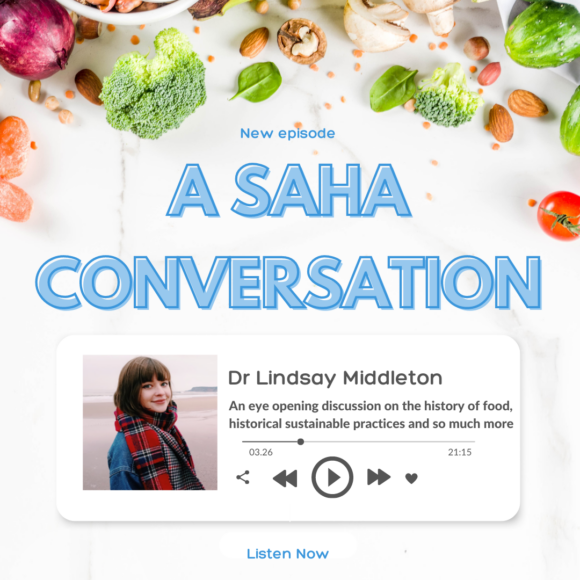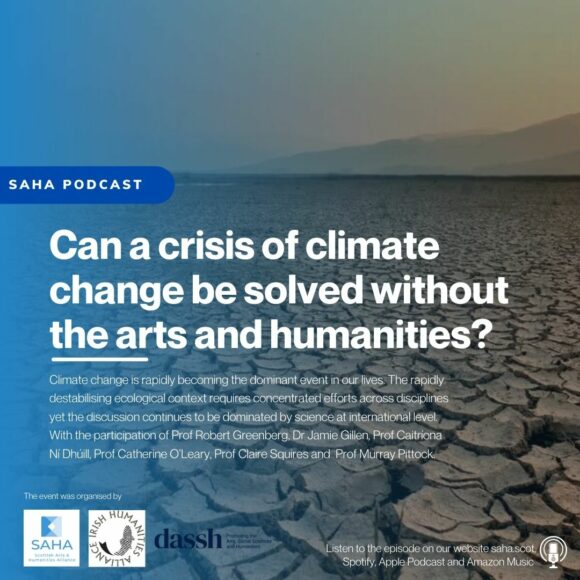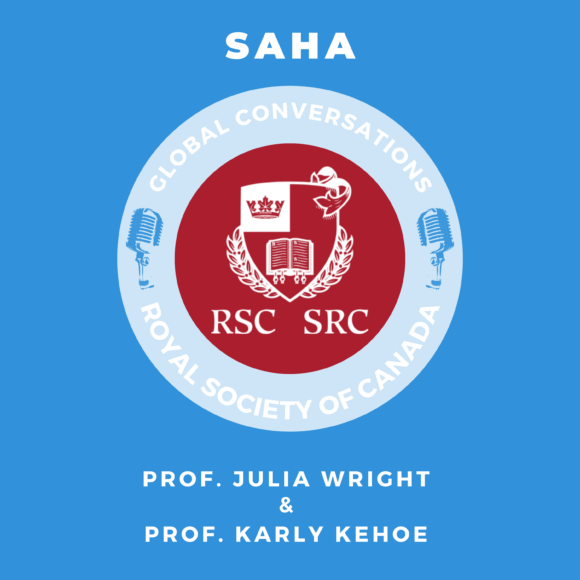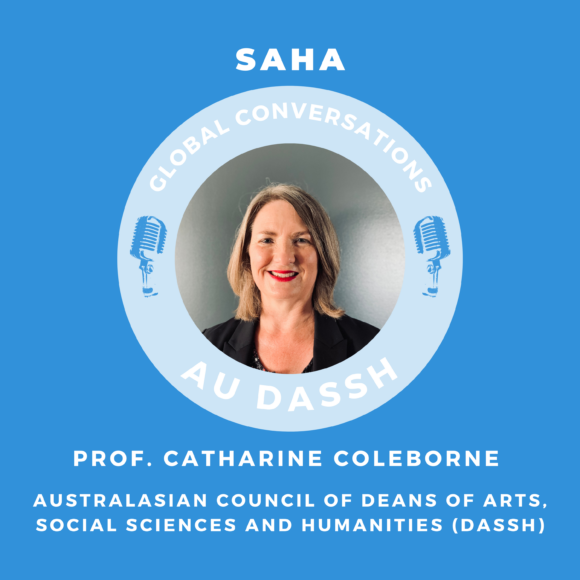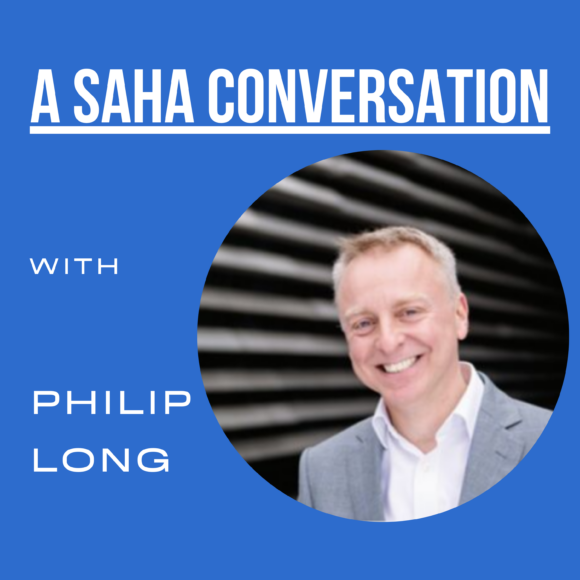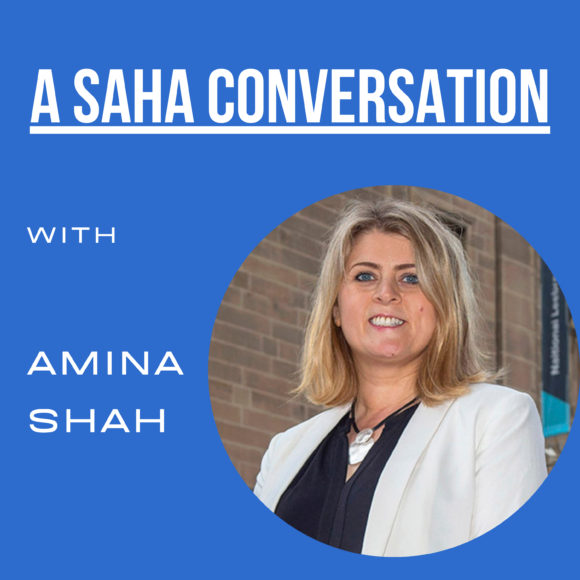SAHA brings you a new special edition podcast with historical insights into the invasion of Ukraine. Our speakers, drawn from across the Scottish higher education sector, are authorities on the history and culture of the region. In this discussion, grounded in an arts and humanities perspective and independent historical inquiry, the speakers explore contested narratives of the past and what these mean for our understanding of the current conflict. They also discuss the importance of narratives of national identity and why religious, economic, and political legacies still matter if we are to reach greater insight into this complex region and into the ongoing invasion of Ukraine.
We would love to hear your thoughts about this podcast – please get in touch with us via the website, Twitter @SAHA_voice – #SAHAInsights, LinkedIn or Facebook.
The podcast participants are:
- Dr Jon Blackwood (podcast host) – Reader and Research Lead, Gray’s School of Art, Robert Gordon University
- Dr Murray Frame – Interim Dean of the School of Humanities, University of Dundee
- Professor Robert Frost FRSE – Burnett Fletcher Chair in History, University of Aberdeen
- Professor Anthony (Tony) Heywood – Chair in History, University of Aberdeen
- Dr Thomas Marsden – Lecturer in European History, University of Stirling
- Professor Catherine O’Leary – Professor of Spanish, University of St Andrews & SAHA Co-chair
Please find below some of the resources mentioned in this episode and further reading recommendations shared by the guests and Dr Asya Kudlenko:
- Aleksei Miller, The Ukrainian Question: The Russian Empire and Nationalism in the Nineteenth Century (2003) (freely available)
- Geoffrey Hosking, Russia: People and Empire, 1552-1917 (1998)
- Mykhailo Hrushevsky, History of Ukraine-Rus’
- Robert Frost, The Oxford History of Poland-Lithuania vol. 1 The Making of the Polish-Lithuanian Union, 1385 –1569 (2018)
- Rory Finnin, ‘How the West Gets Ukraine Wrong — and Helps Putin As a Result’
- Serhii Plokhii, Lost Kingdom. A History of Russian Nationalism from Ivan the Great to Vladimir Putin (2018), The Gates of Europe: A History of Ukraine (2016), Ukraine & Russia. Representations of the Past (2008), The Origins of the Slavic Nations (2006)
- Timothy Snyder, Bloodlands: Europe between Hitler and Stalin (2018), The Reconstruction of Nations: Poland, Ukraine, Lithuania, Belarus, 1569-1999 (2003)
- Ukraine World website
 Transcript
Transcript
[00:00:00] Catherine: Hello, my name is Catherine O’Leary and on behalf of the Scottish Arts and Humanities Alliance, I would like to welcome you to our podcast, historical insights on the invasion of Ukraine. Our speakers, drawn from across the Scottish higher education sector, are authorities on the history and culture of the region. They are: Dr. Murray Frame, historian of modern Russia from the University of Dundee; Professor Robert Frost, Burnett Fletcher Chair of History at the University of Aberdeen and an expert on the history of Eastern Europe; Professor Tony Heywood, Chair of History at the University of Aberdeen, whose research focuses on Russian and Soviet history; Dr. Thomas Marsden Lecturer in European History with a particular focus on Russia at the university of Stirling. The moderator for the discussion is Dr. Jon Blackwood Reader in Art and Politics at Robert Gordon University. In this discussion, grounded in an arts and humanities perspective and independent historical inquiry, the speakers explore contested narratives of the past and what these mean for our understanding of the current conflict. They consider the importance of narratives of national identity, when these emerge, how they are communicated and why they are contested. They examine what commemorative practices tell us about the present and why religious, economic, and political legacies still matter if we are to reach greater insight into this complex region and into the ongoing invasion of Ukraine. We hope that you find it useful.
[00:02:00] Jon: So, good morning everyone and welcome to our discussion. The first topic we have to consider regards the Kremlin statement made to justify the so-called ‘special military operation’ in Ukraine presented on the 21st of February that does present a certain interpretation of history. So, could we reflect on the strategic use of history and its current extreme weaponization? Murray, I wonder if you’d like to see something about that.
[00:02:31] Murray: Thanks, Jon. Well, I mean, obviously there are many layers to understanding the background to the invasion. One of them is a particular narrative of Russian and Ukrainian history, which I think is fundamental to understanding the war because it really underpins why the Kremlin views Ukraine as an integral part of Russia’s own heritage and why it should therefore be part of Russia’s sphere of influence. And that narrative is essentially that the two countries are fundamentally the same, sharing common roots in ancient Rus or Kievan Rus, which was the first Slavic polity in Eastern Europe from about 800 to 1240. And this theme, as you’ve mentioned, appeared in a very distorted version in the paper entitled ‘On the historical unity of Russians and Ukrainians’, which appeared on the Kremlin website last July. And this was really preparing the ideological ground, if you like, for the invasion, by trying to use history to deny Ukraine’s right to exist as a separate state. And therefore, I think it’s a blatant example of both history as propaganda and as you mentioned, a weaponization of the past for political purposes. It’s an attempt to impose a particular view on the past as a justification for the actions of the present. But I think the point I would emphasize is that that narrative is by no means an uncontested or uncontroversial picture of Ukrainian and Russian history or Rus-ian history to invoke the earlier term for the East Slavic lands. And one can point to all these examples of contestation around that narrative. One is that the political unity and cultural homogeneity of Kievan Rus is very much a matter of historiographical dispute and debate amongst historians. Many would argue that it was really much more fragmented than some modern Russian historians have argued and there are lots of reasons for that. And another example relates to the famous in this context, treaty of Pereiaslav, 1654, which bound left bank Ukraine to Muscovy. And that has always been presented or usually been presented by Russians and Russian historians as a kind of an act of fealty to the tsar and a process of reunifying two of the main parts of ancient Rus. But Ukrainian historians on the other hand see that treaty much more as an alliance, which was never meant to lead to what they see as the effective colonization of left bank Ukraine by Russia. So that narrative which underpins this kind of ideological justification for the war, if you like, in historical towns and in the historical context, I think is a highly contested one.
[00:05:32] Jon: Thank you very much.
[00:05:32] Robert: Robert Frost. Yes, I would take that up, the thing that struck me most about Putin’s statement was this one, in which he said Lenin created modern Ukraine, without asking the millions of people who lived there … as if Putin asks millions of people to agree to anything other than what Putin thinks. But I would take up what Murray said and say that the thing about these lands that we’re talking about is that from the very outset they’d been multi-ethnic, multinational, multi-religious with all sorts of peoples living on them. And the problem we face is the attempt in the 19th century to construct narratives based on the idea that the state and the nation should be coterminous. And this caused tendentious interpretations of the past to come out from Russian historians, but also from historians of Ukraine writing against that idea, the greatest of which was Mykhailo Hrushevsky in the end of the 19th century, who wrote his history of Ukraine Rus, because he was bothered by the Hegelian claim that there were nations and there were historic nations and historic nations had a tradition of statehood. And Hrushevsky reads Hegel and is worried by him, because he has to locate a traditional statehood that means that Ukrainians are proper nation, which he locates in Kievan Rus and writes a very powerful critique, tendentious in its own way, of the Russian interpretation of the links between Kievan Rus and modern Russia. And the aspect that gets left out of much of the Anglophone story, at least in the textbooks, not in the works of professional historians these days, is the fact that Ukrainians had to define themselves against two others, the Great Russians and the Poles, and they were on that borderline of European culture between Western Latin culture and Eastern Orthodox culture. And that is the complexity of Ukrainian identity to this day. They spent as much, if not more time, living under Polish and Lithuanian rule as part of a deeply uncentralized political system that in the Renaissance period became overtly Republican, although it had a king. And so therefore they drew on Western culture, but were also part of Eastern culture and that battle in the 19th century, when both Poles and Russians said that Ukrainians weren’t a proper nation, that Ukrainian wasn’t a proper language, has done much to form modern Ukraine.
[00:08:21] Jon: Very, very interesting. Tony, I wonder if you’d like to come in there.
[00:08:23] Tony: Yeah, I’ve got a couple of points I’d like to add. The first one is, this use of history in this particular crisis is not an isolated instance during Putin’s tenure in Russia. I remember being told a story about five, six years ago, when I was researching in Russia, about a colleague who had written an article about crime in blockaded Leningrad in World War II and hadn’t been able to publish it because basically the response was it defames the Soviet state. And that colleague was employed at a state institution, therefore taking money from in effect the state budget as their salary. The logic was, if the state pays you, then you cannot defame the state. That’s World War II. This is a different instance, but the pattern is, I think, exactly the same. This is control of the history. And I think that if we step back a little bit to a broader point it really stresses the importance of independent historical inquiry. If you’re going to understand your history as a country, as a people, you have to have historians who are not not beholden to the state in that way, it seems to me. The other point that I’d like to bring in is a term that was very common 20 – 30 years ago in the aftermath of the break of the USSR but its use has gotten lost lately. I think it’s quite helpful in understanding how areas around the Russian Federation have been seen, and that is the Near Abroad. It was a concept that the Russian … I suppose was the Yeltsin government, played with in the 1990s to try and express a connection with the Russians, as they say ethnic Russians, who lived outside the borders of the Russian Federation in places like Ukraine, the Baltic states, Belarus and so forth. There was a strong sense of a need somehow to protect these people in that decade and a complete inability of the state to do so. Now the term is … I haven’t seen the term used for a long time now, perhaps I just wasn’t looking in the right places. But anyway, it’s something, I think that’s helpful to bear in mind when trying to get to grips with what Russians think about these areas.
[00:10:35] Jon: Thank you very much. Thomas?
[00:10:37] Thomas: Yeah. Thank you, Jon. I want to follow on from Tony really in thinking about this in the wider context of Putin’s falsification and weaponization of history and I think there’s a few different things going on here. I mean, we can see the complete distortion and the blatant lies in relation to the most recent history and in a way, this is the most important when thinking about the Ukraine crisis, it’s the idea that genocide is taking place in the Donbass and the recent nazification of the Ukrainian government. In a way, this is the most important distortion because that’s what justifies the conflict to the Russian population. But alongside that we have a long-term trend in Putin’s government, kind of what Tony was talking about there, the attempt to eradicate negative parts of the Soviet past in particular and moments when the Russian state or the Soviet state has attempted to sort of repress democracy and repress freedom. So we see that yes, certainly as Tony was talking about in relation to historians as employers … as employees of the state, but also with the recent repression of independent historical organizations such as such as Memorial, who have played a massively important role in trying to commemorate Stalin’s repression. Then I think there’s the sort of historical distortions and strategic use of history in relation to a sort of imagined past. One of these that stands out is the attempt to deny Ukrainian statehood which is again, it’s a blatant mistruth and has no basis in history. The idea that Lenin created Ukraine as a state is a nonsense. The first Ukrainian under that name, the first Ukrainian state to emerge was in 1917, following the Bolshevik revolution so we can dismiss that. The final point, which in a way, I think is, it is again about the weaponization and use of history, but it’s about Putin’s sincere beliefs, I think. And that is Putin’s embrace of an all-Russian nationalism. And of course, all nationalisms are distortions of the past by definition, they try to find these ancient stories of nations that go back to antiquity. And in a way, I think that’s, that’s kind of the most interesting story here, that Putin is returning to this old Russian nationalism, which isn’t a new invention. It’s something that belongs in the 19th century. Actually, one of the things looking at the … so both the statements you sent us, but also that July 2021 this was his famous sort of article, Putin thinks of himself very much as a historian. He takes history seriously, he is Putin the great historian as well as being the great shooter of tigers and everything else he does. But there’s a quote I wanted to read to you from Katkov, one of the most important publicists of the 1860s. In 1863 he wrote: ‘Ukraine has never had a distinctive history, it has never been a separate state, the Ukrainian people is a purely Russian people, an essential part of the Russian people, without which the Russian people cannot going on being what it is’. So I just wanted to read that to show that this sort of all Russian nationalism that Putin subscribes to isn’t a new invention. It’s something that was part of the sort of emerging Russian nationalism of the 19th century.
[00:13:47] Jon: Thank you very much, Thomas. It’s been a really interesting series of comments. I lived in Estonia for a while 15, 16 years ago and I can remember the visceral fear in Tallinn when Russia invaded Georgia in 2008. That was a very strange week in Tallinn and it reminded me, I was called to mind by Tony’s comments on Russia’s attitude to ethnic Russians, for want of a better term, beyond the borders of the current Russian Federation and Thomas’ comments follow on from that really well. But I suppose we need to move on a little bit on to the question of Kievan Rus that a couple of you mentioned in your introductory remarks. And what more we should say about the legacy of Kievan Rus as it plays a part in the narrative presented by Putin to support his current military actions?
[00:14:42] Thomas: I can come in. So yeah, I think, again, it comes back to thinking about the emergence of Russian nationalism, I suppose, and that attempt to create a sort of … a narrative that goes back to antiquity. So if we look at when those first narratives begin to emerge, we can return to the early 19th century and the famous Russian historian Nikolay Karamzin and his history of the Russian state, which has published I can’t quite remember, I think is around 1812. Someone might want to correct me on that. It begins with Kievan Rus. So it traces the history of Russian statehood back to Kievan Rus. And this is the narrative that really sort of took off from the 19th century among first sort of Russian national thinkers. I think the other really important thing to note here in terms of a Russian national narrative is the centrality of Orthodoxy to that sense of Russian nation. So if we look at the earliest Russian nationalists, very often, they’re associated with Slavophiles, this intellectual movement that grew up in the 1830s among the Muscovite mobility. They saw the key to Russian nationhood as being Orthodox unity. And so, if they’re thinking about Orthodoxy as being the key to Russian nation, and of course they can’t ignore Kiev because this is where Eastern Slavs first converted. That’s the Orthodox faith. So I think from the very early days of thinking about this, if there’s a such thing as Russian nation, it is very much associated with Orthodoxy and with that Kievan legacy, with the history of statehood and the history of the faith. I think the second thing to point out about the importance of that legacy is the way that that then comes into conflict with an emerging Ukrainian nationalism. Robert mentioned Hrushevsky, but even before that Ukrainians have begun to put forward an alternative narrative, which traces the origins of the separate Ukrainian nation back to Kievan Rus.
[00:16:30] Jon: Thank you very much, Thomas. Robert?
[00:16:32] Robert: Yes and I think what the Russian narrative that Putin has taken up stresses is continuity. Whereas the whole history from Kievan Rus is marked by discontinuities and the lack of unity within that Orthodox tradition. And that is particularly clear if you look at the discontinuity of the Mongol invasions, which destroys Kievan Rus, but which only brings part of what had been Kievan Rus under Mongol overlordship for two centuries, and the rest is swept up by Poland Lithuania. Well, first by Lithuania and then [it] becomes part of this Polish Lithuanian Commonwealth, where it is part of it, Kiev is part of it for well over three centuries, a very long time. And within that there is this fight for religious control between metropolitans of Kiev who go to Muscovy and accept the Muscovite link, but attempts to establish a separate metropolitanate in the Grand Duchy of Lithuania at the elevation of a Patriarchate of Moscow in 1589, which claims to rule all the Orthodox church, but which does not. Seven years before the creation of the Greek Orthodox church, the Uniate Church, the Union of Brest in 1596, which is an attempt to create a place for the Orthodox within this Republican Polish Lithuanian system, which has played an important role in the creation of modern Ukrainian nationalism at least in Western Ukraine. And Ukraine is a religiously divided state today with an Orthodox church that is loyal to the Moscow Patriarchate, a Ukrainian Orthodox church with a Ukrainian Patriarchate, plus an autocephalous church and the Uniate church. So the unity of orthodoxy has been a myth throughout and it’s discontinuity, not continuity, which marks Ukrainian history and Russian history.
[00:18:41] Jon: Yes, indeed, very much so. Tony?
[00:18:59] Tony: Yes, I think this is not entirely unproblematic for Putin either. Two points to make: one is that in pretty much central Kiev there’s a monastery complex that plays an important role in Orthodox history. What happens if his tanks destroy that monastery complex in the course of the fighting? And how does that play with the Orthodox faithful at home in Russia? So it’s a very important site in that history. And the second thing is the Moscow Patriarch at the moment. He’s come under considerable pressure from both the Archbishop of Canterbury and the Pope in recent days to come out and oppose war but he hasn’t done that. But I was reading reports about priests around Russia who are condemning the war. This is obviously going to be, it seems to be obviously going to be, a problem going forward for the Orthodox church within Russia.
[00:19:53] Jon: Thank you very much. Well, shall we move on to the next question? This religious dimension is clearly fundamental to the problems that we’re currently facing in the conflict, but of course there’s also the economic dimension and much of the media coverage has focused on the impact of Western sanctions on the Russian economy, but taking the longer view I wonder, Murray, if I could ask you, if there were moments in Russian history where economic consideration and scarcity have led to regime change? And what we can learn from such moments in history?
[00:20:18] Murray: Well, I think what we can point to is the fact that in Russian history there is a very strong, or there has been a strong association between war and revolution or regime change. So one can point to, for example, the 1904-5 Russo-Japanese war, the impact of which drove the 1905 revolution, which led to some constitutional change in 1905. And then of course, there’s the story which Tony may want to speak to as well about the impact of the First World War in bringing about the Russian revolution, you know, there was a significant economic crisis at that time, rampant inflation, there was also a significant refugee crisis in the Russian empire’s Western borderlands at the time. And that played no small part in bringing about the turmoil of the 1917 revolution. One could also point to the impact of the Soviet invasion of Afghanistan and the extent to which that helped to undermine the Soviet Union in the 1980s, early 1990s. So I think in terms of the lesson that we can derive from those historical examples, I would say that there is a strong link between the significant economic and social side effects of foreign conflict. But also that it’s quite difficult to predict exactly how and when war leads to regime change in Russia, by no means inevitable, but I think it is a distinct possibility.
[00:21:59] Jon: Thank you very much. Robert, over to you.
[00:22:02] Robert: Yes. If I may take, might take a longer historical perspective there’s one major example from the 16th century, which is what followed the reign of Ivan the Terrible. And it’s linked into another aspect of this historical distortion of Putin, one that’s had quite a career in the West. The idea that Russia is vulnerable, Russian history is characterised by major invasions by foreign powers. And they mention the Polish occupation of the Kremlin in 1612, [and invasions in] 1812 [by Napoleon], and 1941 [by Hitler]. But they never mentioned the fact that all of these invasions of Russia were the result of attacks by Russia on its neighbour. Russia has been a major imperial aggressive power. It attacked the Lithuanians from 1494, 5 major wars down to 1533, all launched by Russian attacks except one which was a Polish-Lithuanian attempt to get back territory that it had lost. Then Ivan the Terrible launches in 1558 the Northern wars by invading what’s now the Baltic states: Livonia, Estonia and Lithuania. But he comes up against armies that are better and it almost destroys the Russian military system and creates a major economic, political, and social crisis in Russia: the Time of Troubles. Now the Poles and Lithuanians offer their alternative model to the Russian elites, but here you have a clash of political cultures. When Poles talk about ‘don’t you want liberty and freedom?’ They say ‘no, we prefer the fierce rule of the Tsar’. But Ivan almost destroys that. And so that was very much a regime change. They actually elect the son of the king of Poland as Tsar, some groups of boyars, but then order is restored. So Russia’s aggression has often brought a counter aggression from outside but they are by no means innocent in this.
[00:23:59] Jon: Yes, thank you. Thomas, over to you.
[00:24:02] Thomas: Thank you. Yeah, I wanted to pick up on a couple of things that kind of Robert and Murray have already discussed really. The first is about the economic question. Murray’s point that it’s very hard to predict if that could lead to regime change. I think it’s important to remember that Russia has been through economic hardship and periods of economic crisis in the very recent past. And in a way, I mean, sanctions are absolutely necessary I don’t have any doubt about that, but in a way, they are a bit of a double-edged sword in the sense that it does feed into a Russian narrative that we are used to these deprivations, and this is something that’s … we are very familiar with. So I’m not convinced we are at the stage yet where economic hardships would lead to regime change. I think in a way the more serious problem is the question of warfare and military defeats and military humiliation, which of course has very often led to regime change within the Russian context. And I think Putin is, he’s playing a dangerous game really, in courting this far-right Russian nationalism, which is not at all in sympathy with the vast majority of Russians, I don’t think. It makes me think very much of this, of Geoffrey Hoskings’ very influential argument about Russian history, which is that the Russian nation was always sacrificed to the empire. And I think once again, we see something very similar, in that Russian people are being sacrificed to this very anachronistic idea of an old Russian empire that has to be rebuilt and this anachronistic culture of imperialism is being opposed to a kind of modern Ukrainian cultural civic nationalism, of liberalism and democratic freedom. So I think Putin is playing a very dangerous game there, because he’s assuming that there is support for this very anachronistic imperial ethnic nationalist program when I don’t think there is. So I think in a way that is perhaps the bigger problem he faces than the economic sanctions.
[00:26:01] Jon: Thank you very much. That’s some very interesting thoughts there. Tony, over to you.
[00:26:05] Tony: I’m usually uneasy about social lessons from history but I think there are some insights that we can get from the relatively recent past here. And if we go to 1917 in the middle of the First World War, we need to remember there are two regime changes in that year in Russia, first in the February revolution, second in the October revolution. If we look at February, I think the interesting thing there is, there is no obvious opposition leader that leads as it were the charge against the tsarist regime. What I think is crucial at that point, is that the regime finds itself unable to use force to put down, to stop the demonstrations that were occurring on the streets of the capital. The order for troops to fire on the demonstrators is given, basically the troops ignore that order. So the regime loses its ability to use force to control. That I think is the crucial point there. The follow on from that with the new regime is that the elite in the shape of the Provisional Government and the Allies, both of them largely ignore what the populace as a whole seems to be saying in the aftermath of the revolution, which is: we want peace. We want an end to this carnage. The Allies insist on Russia maintaining or carrying out its obligations to support Allied war aims and the provisional government is looking to solidify relations with the allies and insists that yes, we will do that. The net result is that people feel ignored and that deepens the political crisis as well. There’s a role for foreign governments here in relation to what the Russian public at large is saying. How one finds out what popular opinion actually is, of course, is another matter entirely, but in 1917 I think that was pretty clear.
We move to the Bolshevik revolution, more complex and I think with further things to think about. First is the foreign response. Bolshevism was described with words like disease and the response was described… essentially the response was sanctions and so-called quarantine, quarantine a disease, a kind of odd echo of the COVID situation, I suppose. Quarantine Bolshevism, try and snuff it out by not letting anybody come into contact with it, really. In those circumstances, two things I think were really important. One was the fanatical determination of the new leaders to hold onto power and to use force to do that. And they were, they were able as well as willing to use force, hence we get into things like the Red Terror. And that of course also opens up the scope for civil war, those leaders, in fact leaders on both sides … both main sides, gosh, let’s not get into the complexities of the civil war, but essentially, they were fighting an existential war. It was life … it really was life or death. I think there is a sense in which Putin has taken himself into that kind of corner. His political life at any rate is on the line at the moment. And suppose he does lose power. What happens to him then? What is he going to be thinking about what happens to him in that kind of scenario? I don’t imagine he’d be at all happy about it. So there’s scope for civil war.
And the third point that follows on from that is with the foreign military intervention that occurred during 1918 to 1920 or so, is what do you do if the sanctions don’t appear to be achieving the objective and nor does the military intervention? The exit strategy such as it was over the course of 1919-1920 for Lloyd George was a … I think a key mover in this, was basically to develop the idea of killing Bolshevism with kindness. You start trade with quote unquote, the Russian people, not the regime. And that’s a terribly difficult distinction to make which the Bolsheviks easily undercut. But, you start trading in the hope that prosperity will make people think that Bolshevism is not a good idea. What it doesn’t take into account is the way that the Bolsheviks were able to use Russian nationalism to mobilize people against the foreign intervention, and generally that creates a sense of a siege mentality, where the country is under, well under siege, under threat, and that these foreigners are seeking to snuff Russia out. And it’s that kind of rhetoric that I think you’re seeing from the Russian government over the last few days.
It seems to me, there is a direct echo of that situation, at the end of the 1910s early 1920s. The one other thing I’ll bring into this discussion that hasn’t I think been mentioned so far is 1991. Sure there wasn’t a war with guns being fired going on at that time. But there was the Cold War. And of course you have the argument, in the States particularly, that Reagan and such other presidents helped to bring the Soviet Union down through their, you know, the pressures that they put onto the Russian economy particularly during the Cold War. In other words, the West won the Cold War and the implosion of the Soviet regime was a consequence of that. If you look at what happened in 1991, in August specifically, in 1991, when there was that attempted coup, you’ll remember that that’s what in most Western minds brought Yeltsin to the fore. He became a rallying figure, something that there wasn’t in February 1917, but there was for Muscovites particularly in 1991 and they came out onto the streets then. Even though tanks were on the streets. Where’s the rallying figure now? And the obvious person, I suppose, one would point to is Navalny, but he’s safely tucked up in prison as far as Putin is concerned. So what kind of, kind of change needs to happen within Russia for people to come out onto the streets, even though there’s a possibility of tanks being there?
[00:31:52] Jon: Well, yes, we’re in uncharted territory there. Robert?
[00:31:56] Robert: Yeah, just to pick up on what Thomas and Tony have said, I’m sure that Thomas is right, that there are many, many Russians, especially among the young, urban Russians, educated Russians who reject this Putinesque interpretation of history. But I wonder if I could ask my Russianist colleague, how far that Putinesque interpretation is still held to and that strikes a chord, the idea of the vulnerable Russia, the idea of the Russia always under attack from the West. The idea of NATO as an aggressor. Because I think among older Russians, I get the impression, and among rural Russians, it strikes a much greater chord. I mean, we’ve had reports of Ukrainians texting their Russian relatives, family saying ‘Look, what’s going on. How can you support this?’ And they say ‘oh, you’re all making it up, you’re bombing your own factories’ and repeating the Putinesque propaganda, which is deeply worrying. So I don’t know what my Russianist colleagues would say about the balance of those interpretations in Russian society today.
[00:33:08 ] Jon: Yes. Thomas, you want to come in there?
[00:33:11] Thomas: Yes. I mean, I haven’t been to Russia obviously in the past few weeks, so it’s a very hard question to answer. I think, I think Robert’s right that the propaganda machine is very effective. And this is why I said at the beginning really the important distortions relate less to this, this use of the narrative of Ukraine’s lack of statehood and more to the question of genocide in the Donbass and the nazification of the Ukrainian regime. And my impression is that these are the distortions that are persuading the Russian public that this war is necessary. In terms of the appeal of a sort of all-Russian nationalism about rebuilding the Russian empire I’m not convinced that does has mass support. I’m not convinced that many people in Russia would be behind the idea of claiming Ukraine as part of historic national territory without the use of these lies about the need to go in there to protect ethnic Russians. I mean, of course, that call to a sort of ethnic brotherhood is a very strong one. And I think that’s something that would resonate with Russians, but I don’t think they equate that to saying, well, Ukraine has to be part of a greater Russian nation.
[00:34:21] Jon: Thank you very much. We need to move on to our next area and there’s a joke going round on Twitter at the moment of one Muscovite residents saying to another ‘what Metro station are you? Kievskaya. And you? Belorusskaya. Meet you Barrikadnaya then.’ So I want to move on to Belarus because of course it’s often overlooked in these recent discussions during the conflict between Russia and Ukraine, but of course, Belarusian territory is being used to launch attacks on Ukraine. And I wondered what your thoughts were on the impact of the invasion of Ukraine on the dictatorship of Alexander Lukashenko, particularly after the constitutional vote of the 27th of February, which removed Belarus’ neutrality and permitted for the storage of nuclear weapons again on Belarusian territory. Perhaps Murray, if you’d like to come in on that one.
[00:35:24] Murray: Well, I think it’s clear that after the 2020 vote and the anti – Lukashenko demonstrations, Minsk has moved much closer to Moscow and has demonstrated the extent to which it relies on Moscow and Russia clearly sees Belarus as a client state and much in the way that it seems to want to turn Ukraine into a client state. So I think it’s, it’s kind of a double-edged sword for Belarus it seems to me, you know, the narrative about Russia and Ukraine being part of the same common Russian homeland equally applies to Belarus of course so that squarely puts all three of those countries, at least in the eyes of the Kremlin in the same package, if one could put it that way. The political benefit for Lukashenko of course, is that that does tie Minsk closely to Moscow. And it gives him that kind of client protection, patronage of Moscow gives him that political protection in the face of what is clearly a huge groundswell of opposition to that dictatorial regime.
[00:36:36] Jon: Thank you very much. Perhaps Robert, you might give us a little bit of further perspective from the Polish Lithuanian context, which of course Belarusian territory was a very important part of.
[00:36:47] Robert: Yeah, well, I think Belarus is interesting and the opposition is interesting, partly because Belarussians lack the same sort of tradition of statehood and claims of statehood that the Ukrainians could muster, not just from Kievan Rus, but also from the Cossack Hetmanate of the 17th and 18th centuries. And the interesting thing for me in Belarusian demonstrations was the use of the symbol of the Grand Duchy of Lithuania, that rider on the horse, which is their claim to statehood, which dates back to the Grand Duchy of Lithuania, which has involved Belarussians in an interesting conversation with Lithuanians about whether it was a Lithuanian or a Rus’ian state. The official language, the legal language was Ruski, was Ruthenian not Lithuanian, which was not a written language to the 16th century. And quite how to judge that I don’t know, because Lukashenko has taken control of the institutions of Belarus. There was a brief period in the early 1990s, when historians at the Academy of Sciences, the Institute of History, of the Academy of Sciences produced a new history of Belarus which was instantly condemned by Lukashenko when he came to power, and it was pulped. And I think I’m right in saying that he then appointed his Soviet high school history teacher to direct the Institute. But I may be wrong on that. But there are many Belarussian historians in exile, in Poland, who are writing against this vision of history and the historians of Lithuania, Belarus, Ukraine and Poland have come together since 1991 in very interesting ways. Quite how this plays out in wider Belarussian society… I just, I’m not an expert, so I don’t know.
[00:38:32] Tony: I think the Belarussian issue is incredibly interesting. The military strategic reality now is that there are a lot of Russian troops in Belarus and should there be any large protest there in effect, there’s a potential occupation force already in place. That’s first thing. Second thing is Kaliningrad, the former German city of Konigsberg is the main city in an area of Russian territory known since 1945 as Kaliningrad, that is geographically isolated from the Russian Federation but still politically part of it. So there’s the question of access for Russia to Kaliningrad. One of the things that the ban on Russian aviation going through EU air space means is that planes that fly from say Moscow to Kaliningrad now have to go up to the Gulf of Finland, along the Gulf of Finland and down the Baltic Sea to get to Kaliningrad, a huge detour. That has got to worry the Russian military apart from anything else, let alone what the politicians think about it. On land the access is essentially by rail through Belarus and through Lithuania, which of course the latter is an EU and NATO member. So it seems to me that the strategic question of Kaliningrad now, it hasn’t been, I think, really brought to the fore, but it is going to be a really sore point in the coming months, I suspect.
[00:39:57] Jon: Indeed. Thank you very much indeed, Tony. I want to move on, colleagues if we may and consider a very broad question for the last question, which is this: what influence do you think the current situation in Ukraine will have on our understanding of history in the future and indeed, more broadly, what we can learn from this situation about the role of the arts and humanities in understanding it? Perhaps Thomas, I can come to you on that one first.
[00:40:29] Thomas: Yeah, very difficult question always to sort of predict the impact of events like this. I suppose one thing you’d hope it would do is to show the importance of history, to show how its abuse can have such a big impact on contemporary affairs and contemporary politics. I suppose one other thing it should bring attention to is the importance of historical parallels. I think making historical parallels is always a very dangerous thing to do, you know, it’s a very dangerous game to start talking about history repeating itself, but there have been a lot of signals over the past 20 years about where the Putin regime is going. And I think we have made, in terms of European powers, made a lot of mistakes in how we have dealt with Putin. And I think looking at history could have helped us potentially to have avoided making those mistakes, both in terms of thinking about the extent to which Russia was humiliated, post-Soviet Union and the attempts to keep it isolated or not sort of rehabilitated, or bring it back into the fold. I suppose also the way in which Putin’s annexation of Crimea and his first illegal invasion of Ukraine and the Donbass has been sort of not ignored of course, but easily forgotten about, easily dismissed in the West.
[00:41:48] Jon: Great, thank you. Murray, could we hear from you in this, please?
[00:41:51] Murray: Yeah. So I think you know, in terms of the impact of the invasion on our understanding of history and the narrating of history, it very much depends on how this all ends. But one thing we do know is that our understanding of the past and the writing of history is very much shaped by contemporary events and contemporary preoccupations. So I think there will inevitably be an impact on our historical understanding. So to posit a couple of possible ways in which emphases might shift. First of all, I think it’s possible that the war will prompt historians of Russia to rethink some of the fundamental narratives of Russian history and most notably the commonly found narrative, which was first made quite widespread by Kluchevsky and Pogodin and others in the 19th century, but it’s commonly found in Western studies of Russia as well, which is the idea that Russia, the course of Russian history has been about gathering in the Russian lands which were sundered by the Mongols in the 13th century and so on. And we spoke earlier on about that historical narrative and how it underpins much of the Kremlin’s understanding of the historical relationship between Russia and Ukraine and so on.
But I think what the invasion has exposed is the extent to which those historical narratives have, you know, going back to the 19th century and onwards, served fundamentally imperialist interests. And so a consequence of that realization if you like is that Russian historians or historians of Russia might become more inclined to view the theme of the gathering in of the Rus-ian lands as a kind of ideology and apologia for imperialism and Muscovite colonization rather than as the inevitable and beneficent reunification of the Rus and so on. Secondly, I think, a lot of historians of Russia, although but by no means all, have regarded Ukraine historically as a closely related appendage of Muscovy and tsarist Russia, albeit one that later on became an independent sovereign nation state. But I think they are now much more likely to give more emphasis to Ukraine’s historical distinctiveness than perhaps they have done in the past. I’m talking about historians of Russia rather than historians of Ukraine per se. And finally, I would say that it’s possible that the invasion will reinforce a view of Russia as having a political culture that is fundamentally authoritarian and expansionist in contrast to a country, which in the past has had autocratic and authoritarian governments but since 1991 and the collapse of the Soviet Union has been dealing with an imperfect and as yet incomplete post-communist transition to democracy. I think that kind of narrative of Russian history will be turned on its head by the invasion. And then very finely in terms of what this tells us about the role of history in general, I think the invasion is very much a reminder that what people think happened in the past can be as important as what actually happened in the past. And as I think Tony alluded to earlier on, I think it’s essential that historians are here to critique the public interpretations of the past, the public history if you like, and to challenge the false assumptions through historical research. So it absolutely underlines the fundamental importance of history.
[00:45:38] Jon: Thank you very much. And your comments brought to mind the words of a Moldovan author Iulian Cecen who said post-Soviet transformation is just an ongoing thing in Moldova has never ended. But I think the post-Soviet era has come to an end from the 24th of February onwards. Tony, I wonder if you wanted to take us forward in this broad last question.
[00:46:02] Tony: Sure. I mean, I’d endorse what’s been said so far. Perhaps the thing to add is that just notwithstanding the importance of that critique over the coming months and years, it’s actually going to be more difficult now. Russian historians: I suspect they’re going to find that it’s harder to publish exactly what they want to write necessarily within Russia. Western historians, non-Russian historians, they’re going to have a lot of trouble working in Russian history for a period, because of course, one can’t go to Russia, can’t get access to the archives. How long is that situation going to pertain? It could be a very long time actually. So how is that independent critique going to be sustained and developed over the coming years? I think that’s a real practical problem.
[00:46:44] Jon: Yes, absolutely. Robert?
[00:46:47] Robert: Yes, If I might come in an pick up what Murray said, I found that very encouraging because Murray is absolutely right, historians are important for challenging the stereotypes and the propaganda use of history which works in democratic societies just as it works in authoritarian societies. And what struck me about the blowing up of this whole crisis since the Crimea and before, when I was listening to Russian television when I was in Poland and got distinctly worried about the warmongering that was going on, you never had a trace of that on Russia Today. Russia, Russian governments have been manipulating the free institutions of democratic, consensual societies for centuries. They did it to Poland-Lithuania in the 18th century. They’ve been doing it to us.
And while we have been going through in Britain, quite properly, a fairly radical reappraisal of the role of the British empire in the past and historians have deconstructed the idea that it was this great civilising force, Russia has not yet reached that point. It’s an imperial [culture], it’s not a post-imperial culture at the moment, I think. And if historians of Russia in the West can take up that narrative and perhaps bring in the perspectives of historians of Poland, of Ukraine, of Belarus, the ones that are not under Lukashenko. I think it will be very positive because quite often the British critics of [the] British Empire, and so on, have actually bought the Russian imperial narrative because it’s a stick to beat the British establishment with. And I think that’s one thing that we have to think about seriously.
And I’ll end with a remark that I’ve made several times on this. They say the history is written by the winners. Well, it is, but it’s also written by the losers, but the losers don’t get translated into English. And that’s been one of the problems that we’ve had the translations of the great Russian classics. Well, now we have a translation in English of Hrushevsky, a very good translation, a critical translation. And I hope that that will improve the situation, not least to return to what I said about historians of Poland, Lithuania, Belarus and Ukraine, they’ve been getting together and conquering the demons of the past and the misinterpretations of the past and working towards a common history of that multinational entangled history, that multinational region. So I’d be more optimistic, because the one thing that Putin has created, I think, is a deep sense of the Ukrainian nation among Ukrainians, whether they’re Russian speaking, ethnic Russians, Ukrainian speaking, Uniates, Orthodox; he’s created the absolute opposite effect to the one he intended.
[00:49:23] Jon: Yes. I think that’s been very clear from what we’ve seen since the 24th of February, perhaps the most striking example being the mayor of Odessa who before the war was seen as rather pro-Russian and is now willing, as in his own words, to defend Odessa to the last person from aggression. And it also strikes me in concluding, the cyclical nature of history and cultural analysis. I can remember as a schoolboy attending a lecture by Professor Alec Nove at the end of the 1980s, right at the end of the communist period, when he was very worried, gave a long talk about his concerns for the future USSR as it was then in the 1990s. And I was also reminded as Tony was speaking about archives about one of my university tutors, Professor Christina Lodder being followed everywhere by the KGB in Moscow and then Leningrad in the 1970s and being surreptitiously shown works of modern art by friendly museum professionals during her research on Russian constructivism. Colleagues, it’s been a really rich and fascinating discussion. Thank you very much to everybody for participating. And we hope that everybody listening has enjoyed this. Thank you.
